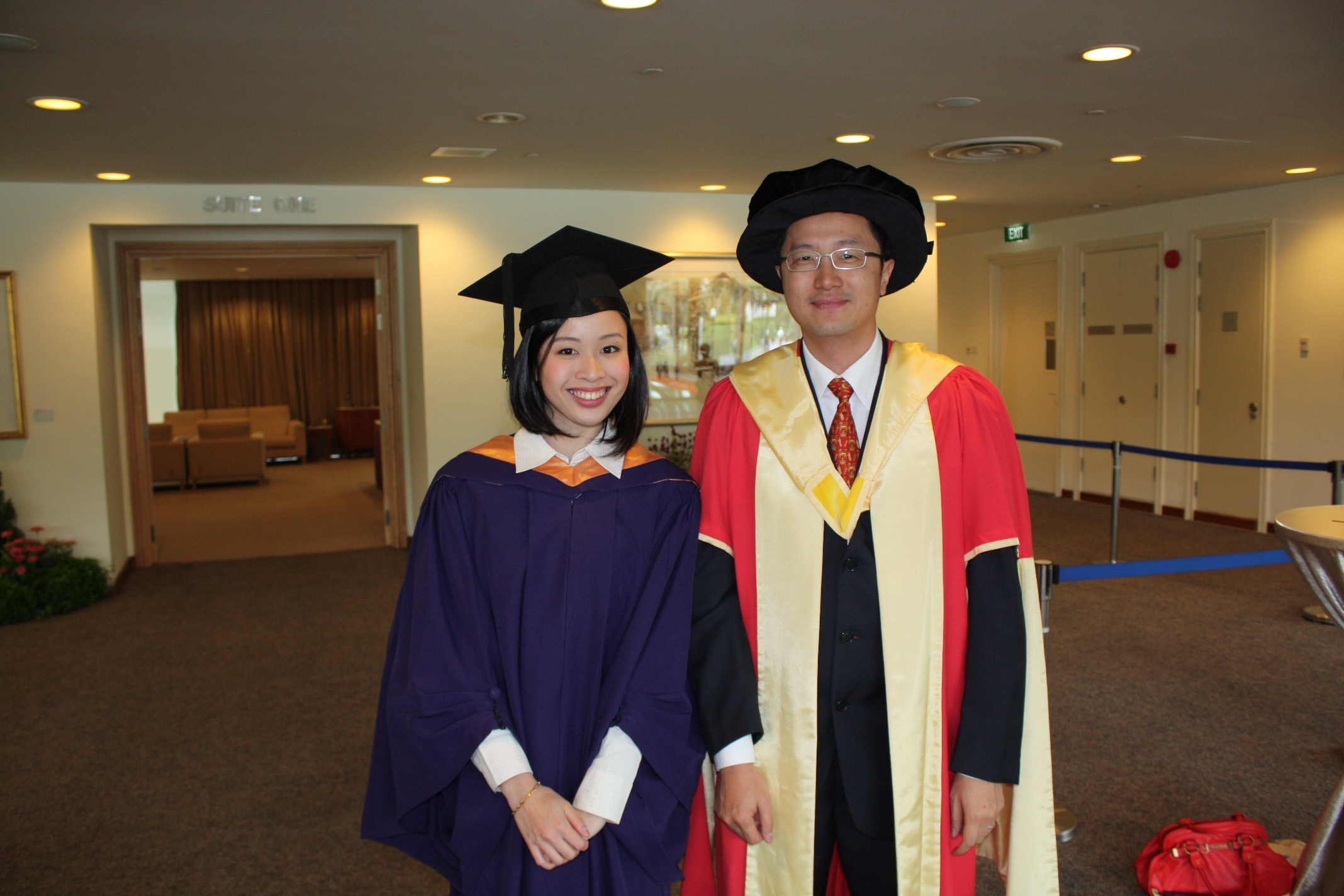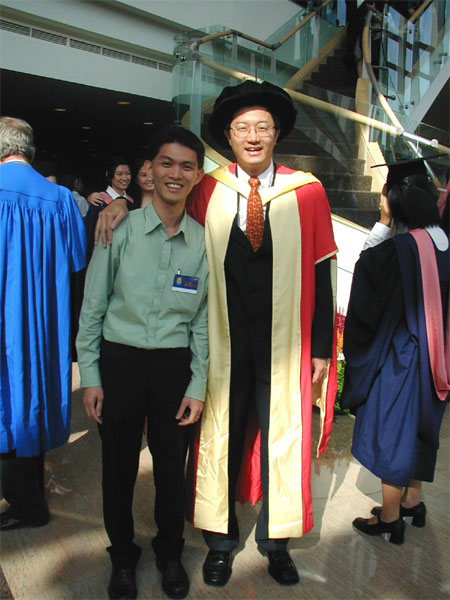|
|
TEACHING
![]() Graduate
Student Supervision (click me)
Graduate
Student Supervision (click me)
ACADEMIC YEAR (RECENT)
![]() GE6212 Mapping Global Economic Change (AY2012-2013)
GE6212 Mapping Global Economic Change (AY2012-2013)
This module examines the complex debates and struggles over the concept "globalisation", as well as the perceived nature of the flows, dynamics, processes, and impacts associated with globalisation. Such issues are important to examine because the term "globalisation" has become (as a concept) ubiquitous and is now used to rationalise and/or legitimise a plethora of policies and strategies in the public, private, and non-governmental organisation sectors. However, while the concept of globalisation is being increasingly used at this time in history, it rarely receives the critical attention it deserves. The outline for this module will vary from year to year depending upon the interests of the incoming group of students, and staff availability. Please note that this module is a graduate seminar, and will be conducted as a proper seminar. Attendance and full preparation are the basic requirements. Ph.D. candidates will be expected to cope with additional written material, as well as added responsibility in the seminar context.
![]() GE4101A Development of Geographic Thought(recoded GE4223 in AY2014-15)
GE4101A Development of Geographic Thought(recoded GE4223 in AY2014-15)
This module examines the complex debates and struggles over the concept "globalisation", as well as the perceived nature of the flows, dynamics, processes, and impacts associated with globalisation. Such issues are important to examine because the term "globalisation" has become (as a concept) ubiquitous and is now used to rationalise and/or legitimise a plethora of policies and strategies in the public, private, and non-governmental organisation sectors. However, while the concept of globalisation is being increasingly used at this time in history, it rarely receives the critical attention it deserves. The outline for this module will vary from year to year depending upon the interests of the incoming group of students, and staff availability. Please note that this module is a graduate seminar, and will be conducted as a proper seminar. Attendance and full preparation are the basic requirements. Ph.D. candidates will be expected to cope with additional written material, as well as added responsibility in the seminar context.
Download AY2014-2015 course outline in PDF format here. 

![]() GE2202 Economy and Space (AY2017-18)
GE2202 Economy and Space (AY2017-18)
This module is an introductory course in economic geography that explores the contemporary insights provided by geographers researching various dimensions of economy and space. It will do so in an innovative way that is pedagogically oriented in terms of topical selection, content and style, but it will avoid the traditional reviews of literature, theories and examples that are so tempting when conceiving of undergraduate courses. Instead, we will adopt a new format in which topical questions are posed and debated from an economic-geographical perspective. Indeed, as a whole, the module will present a case for the importance of geographical insights, in which economic processes are seen as embedded in particular places, in which patterns and flows of economic activity across space are recognized and explained, and in which economic spaces and scales are themselves treated as representations and social constructions. These distinctively geographical sensibilities often stand in stark contrast to the popular conceptions and assumptions in economics and management studies that distort our understandings of economic lives and landscapes. You will thus be introduced to economic geography not as a dry discipline to be toiled over, but as a vibrant and distinctive collection of insights into the real world around them.
In terms of style, we intend each lecture to:
- Be structured around debating a single question designed to stimulate your interest and curiosity.
- Make a clear argument as to the particular insight brought to the topic in question by an economic-geographical perspective.
- Engage with theoretical ideas and concepts.
- Illustrate these ideas with examples, vignettes, and case studies drawn from around the world, and from a variety of economic sectors.
Download 2017-18 course outline in PDF format here.
EARLIER ACADEMIC YEARS
![]() GE1101/GEK1001 Place,
Environment and Society
GE1101/GEK1001 Place,
Environment and Society
This module provides an introduction to contemporary geography,
explaining processes and problems of physical environments and
human landscapes. Beginning with questions like 'what is Geography'
and 'how do Geographers look at the world', this module helps
us
understand our place in a changing world. It provides a basic
examination of processes in global environments: environmental
problems,
management and solutions. It will also explore critical issues
in space and society: flows of capital, culture and people as
well as
place identity. The module concludes with case studies highlighting
the interconnections within and between physical environments
and
the human world.
Download 2004/2005 course
outline
in MS Word format here.
Download Yeung, Henry Wai-chung
(2002), 'Globalization', in Alisdair Rogers and Heather Viles
(eds.), The Student's Companion to
Geography, Second Edition, Oxford: Blackwell.
![]() GE4202 Remaking the Global Economy
GE4202 Remaking the Global Economy
This module examines the interrelationships between transnational
corporations (TNCs) and regional development in an era of
global economic restructuring. The knowledge of TNCs and their
cross-border operations is indispensable to any serious attempt
to
understand the dynamics of the global space-economy. In the Asia-Pacific
rim, TNCs are major economic agents spearheading
economic development and social change at both national and regional
levels. TNCs also play a prominent role in different spheres
(production, consumption and exchange) and sectors (primary, secondary
and tertiary) of any regional economy. The module seeks to
achieve a mixed blend of theory and practice of TNCs and regional
development. It provides students with not only description and
explanation of TNC operations, but also practical knowledge in
the analysing the impact of TNCs on regional development. In addition
to
regular readings, students are expected to conduct specific case
studies on the role of TNCs in regional development.
Download 2007/2008 course
outline in Word format here.
|
Department of Geography National University of Singapore 1 Arts Link, Singapore 117570 Office: (65) 6516-6810; Fax: (65) 6777-3091 Email: HenryYeung@nus.edu.sg; Homepage: http://courses.nus.edu.sg/course/geoywc/henry.htm |